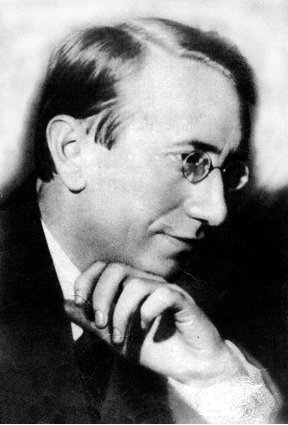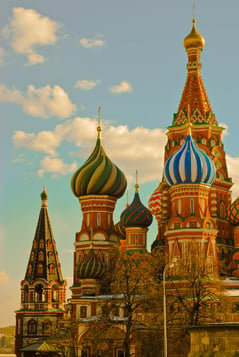Any lovers of twentieth-century Russian literature should learn about—and purchase as soon as possible—the recently translated works of Sigizmund Krzhizhanovsky. The Soviet author was born in Ukraine and studied law before traveling across much of Western Europe. In 1922, when he was thirty-five years old, he moved to Moscow, where he wrote most of his works in that same decade and shortly thereafter. His fiction was never published during his lifetime, likely due to the threat of Soviet censorship. Some have called him a postmodernist, trapped in the post-Revolutionary world of the Soviet Union in which literary dissent was unwelcome. Others describe his work in terms of science-fiction, fantasy, and even the magically real. Yet we don’t know that Krzhizhanovsky’s fiction is capable of being packaged so neatly. His works are at once reminiscent of postmodern novelists and short-story writers, true, yet they’re also some of the few works of fiction that seem to be truly unique.
Publication of Sigizmund Krzhizhanovsky’s Fiction
 By and large, nothing of Krzhizhanovsky’s fiction was published until after the Soviet Union and its sphere of influence began to collapse. While Krzhizhanovsky was writing, he wasn’t sharing his works. Instead, after his death in 1950, his partner Anna Bovshek made sure to save Krzhizhanovsky’s fiction. Rumor has it that she kept them in her clothes chest, according to Adam Thirlwell’s introduction to Autobiography of a Corpse (2013). While there was a brief moment in 1957 in which the Soviet government showed some interest in exploring Krzhizhanovsky’s role in Russian literary history, it wasn’t until 1989 that it became safe, so to speak, for his fiction to be published. While the scholar Vadim Perelmuter had discovered Krzhizhanovsky’s work back in 1976, the first story wasn’t published for another thirteen years.
By and large, nothing of Krzhizhanovsky’s fiction was published until after the Soviet Union and its sphere of influence began to collapse. While Krzhizhanovsky was writing, he wasn’t sharing his works. Instead, after his death in 1950, his partner Anna Bovshek made sure to save Krzhizhanovsky’s fiction. Rumor has it that she kept them in her clothes chest, according to Adam Thirlwell’s introduction to Autobiography of a Corpse (2013). While there was a brief moment in 1957 in which the Soviet government showed some interest in exploring Krzhizhanovsky’s role in Russian literary history, it wasn’t until 1989 that it became safe, so to speak, for his fiction to be published. While the scholar Vadim Perelmuter had discovered Krzhizhanovsky’s work back in 1976, the first story wasn’t published for another thirteen years.
However, by and large, most readers in the U.S. and the U.K. only started to notice Krzhizhanovsky once New York Review of Books (NYRB) began publishing new translations of the works in the twenty-first century. The first of these, Memories of the Future (2009), a short-story collection, was followed two years later by the NYRB publication of The Letter Killers Club (2011), a novella. Within two years, a new translation of the novel Autobiography of a Corpse (2013) appeared, and at the end of 2016, the latest addition to the NYRB list of Krzhizhanovsky texts-in-translation, The Return of Munchausen (2016), became available for purchase.
Each of the NYRB publications was translated from the Russian by Joanne Turnbull, in collaboration with Nikolai Formozov. Their translation of The Letter Killers Club won the AATSEEL Award for Best Literary Translation into English, and Autobiography of a Corpse won the PEN Translation Prize.
Fiction from the Margins, or the Liminal Fiction of Moscow
 Numerous poets and fiction writers from the Soviet Union have relied on language, or on the short-story or novel form, to address political issues in the country, from Boris Pasternak to Mikhail Bulgakov to Osip Mandelstam. Yet no writer, perhaps, depicts the liminal space in which imagination is contained as vividly as Krzhizhanovsky. In a story entitled “Seams,” the narrator says:
Numerous poets and fiction writers from the Soviet Union have relied on language, or on the short-story or novel form, to address political issues in the country, from Boris Pasternak to Mikhail Bulgakov to Osip Mandelstam. Yet no writer, perhaps, depicts the liminal space in which imagination is contained as vividly as Krzhizhanovsky. In a story entitled “Seams,” the narrator says:
“People whom Moscow has tried in its courts and banished from the city are said to have been: sentenced to ‘minus 1.’ No one has passed sentence on me: 0-1. I am still here, in the hotchpotch and hubbub of the capital. Yet I am fully and firmly aware: I have been banished forever and irrevocably from all things, from all joys, from all truths: though I walk, look and listen beside others settled in this city, I know: they are in Moscow and I am in minus-Moscow. I am permitted only in the shadow of things.”
Are you intrigued? Don’t wait another second—visit your nearest bookstore and pick up a copy of one of the newly translated works of Krzhizhanovsky today!









